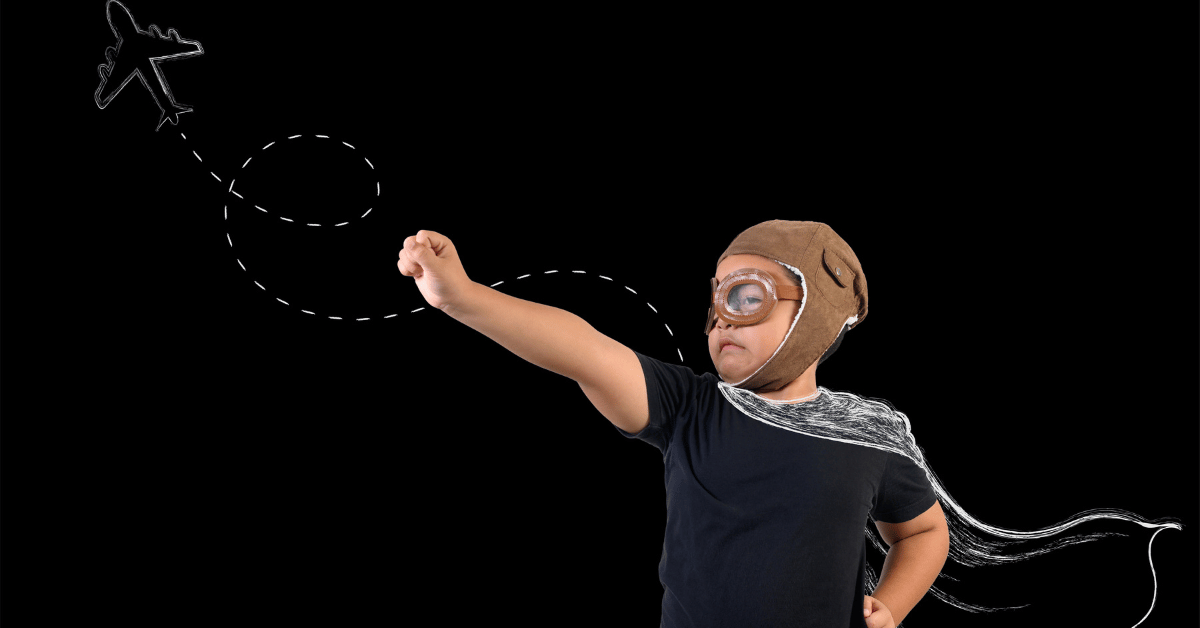In an ever-evolving landscape where names and terms often blur the line between identity and innovation, Daylin Ryder has emerged as a compelling subject. Whether encountered as a digital pseudonym, brand figure, cultural prototype, or conceptual node, Daylin Ryder is a multifaceted informational entity that has caught the curiosity of many. This article breaks down everything you need to know—conceptual origins, relevance, digital significance, narrative structures, and potential interpretations—making it one of the most definitive, stand-alone guides available today.
If you’ve come across the name Daylin Ryder and wondered what it signifies, you’re not alone. The name evokes both the familiarity of a character and the abstraction of a symbol. It is not merely a person or a brand but potentially a hybrid of digital identity, creative character, or socio-cultural metaphor. This article serves as a comprehensive exploration of Daylin Ryder, from its presumed background to its implications in media, branding, and identity evolution. Expect a full spectrum of analysis—from historical speculation to modern adaptability and conceptual utility.
Understanding Daylin Ryder is not just about defining a name; it is about exploring the intersection of identity, information, and interpretation. In this feature, we trace the theoretical DNA of Daylin Ryder, drawing insights from narrative analysis, brand evolution, and user psychology. “Names hold power,” as media theorist Marshall McLuhan once said, “but names that adapt become frameworks.” In this context, Daylin Ryder isn’t just a label; it’s a dynamic framework that stretches across personas, platforms, and purpose-driven dialogue.
The Conceptual Foundations of Daylin Ryder
The foundation of Daylin Ryder is layered, starting from its etymological ambiguity to its growing symbolic weight. Unlike historical figures or rigid digital constructs, Daylin Ryder is fluid by design. It defies static interpretation. At first glance, it may resemble a Western-inspired name, possibly a protagonist from fiction or an emerging digital influencer. But the name transcends singular categories. It is an archetype in the making—adaptable to narratives, flexible in identity.
The combination of Daylin, a name that suggests light, daytime, or clarity, with Ryder, evoking mobility and progression, reveals a dual meaning. Together, it forms a conceptual symbol for evolving identity in motion. Whether in a novel, a digital space, or a brandscape, the pairing constructs a persona that suggests transformation through journey.
In digital semiotics, such a combination of names can function as identity scaffolds—placeholders for projected meaning. Daylin Ryder isn’t a static subject but rather a dynamic story waiting to be filled by context. This linguistic modularity makes it ripe for application across platforms: gaming avatars, fictional characters, pen names, or even AI entities.
Cultural Symbolism and Evolving Interpretations
In cultural terms, Daylin Ryder aligns with the archetype of the “wanderer” or “seeker”—figures seen throughout mythology and literature. From Homeric heroes to cyberpunk protagonists, the fusion of daylight (Daylin) and mobility (Ryder) suggests a character or identity set on a path of discovery, often outside conventional boundaries.
This alignment with the seeker archetype gives Daylin Ryder immense flexibility in narrative design and brand storytelling. Whether positioned as a thought leader in motivational content or as a protagonist in serialized fiction, the symbolic canvas remains vast.
The cultural power of such names lies in their ambiguity. “A name with room to grow becomes its own story,” remarked contemporary novelist Aria Thorne. In that spirit, Daylin Ryder is not confined by existing definitions but enriched by user-imposed narratives and audience perceptions.
| Aspect | Interpretation | Implication in Media/Branding |
|---|---|---|
| Daylin | Suggests clarity, day, or light | Symbol of awareness, new beginnings |
| Ryder | Evokes travel, movement, journey | Symbol of transformation and evolution |
| Combined Significance | “Illuminated journey” or “conscious shift” | Ideal for narrative identity, fictional lead, or visionary brand |
Digital Identity: Avatar or Alias?
With usernames, avatars, and pseudonyms shaping identity in digital spaces, Daylin Ryder finds a natural niche. The name itself is neutral—neither overtly masculine nor feminine, neither bound to a culture nor overtly abstract. This neutrality gives it immense power in the digital domain, especially in forums, gaming platforms, and content-driven environments.
From Discord servers to Instagram handles, names like Daylin Ryder perform the dual function of hiding and revealing. They can serve as masks or beacons, depending on the user’s intent. In such roles, the name becomes less about who a person is and more about what story they choose to tell. The digital age thrives on such modularity.
Digital behavior studies also reveal that people are drawn to aliases that offer both mystery and familiarity. Daylin Ryder fits both ends. It’s easy to pronounce, rhythmically pleasant, and visually balanced—all elements contributing to its adaptability and appeal in online ecosystems.
Fictional Potential: Characterization Across Mediums
In fiction, names are more than identifiers; they are reflections of inner arcs. The fictional potential of Daylin Ryder lies in its versatility. It can easily slip into a variety of genres: a rogue cop in noir fiction, a space traveler in science fiction, or a time-hopping journalist in a speculative thriller.
Writers often rely on name symmetry and emotional cadence to construct believable characters. With Daylin Ryder, the name offers instant credibility and emotional resonance. It is soft enough for introspection yet sturdy enough for action—a balance rare in character construction.
This potential also translates well into transmedia storytelling. A character named Daylin Ryder could originate in a novel, transcend into an audio drama, adapt into a VR simulation, and maintain narrative consistency across each form. This built-in coherence is gold for creators.
| Medium | Role Possibility | Emotional Tone |
|---|---|---|
| Novels | Protagonist/Investigator | Reflective, driven |
| Games | Avatar or Story Leader | Tactical, independent |
| Podcasts/Audio Stories | Narrator or Subject Voice | Warm, immersive |
| VR/AR Simulations | Interactive Identity | Customizable, responsive |
Branding Value and Market Application
Beyond narrative and digital use, Daylin Ryder offers substantial potential as a brand asset. The key to strong brand names lies in memorability, phonetic balance, and emotional neutrality—qualities inherent in Daylin Ryder. It doesn’t force a specific product category but remains suggestive of forward motion, insight, and creativity.
This makes it suitable for industries like:
- Lifestyle & apparel (urban fashion with storytelling)
- Personal development & coaching
- Tech start-ups with a focus on ethical design
- Narrative-based marketing agencies
- Independent media publishing
According to branding expert Chloe Vinter, “Names that suggest transformation and neutrality perform better across diverse demographics.” With Daylin Ryder, companies can build a brand narrative that evolves with cultural needs—one that doesn’t age with trends but adapts with shifts in consciousness.
Psychological Appeal and User Identification
At a cognitive level, names that blend familiarity with uniqueness are the most psychologically attractive. The brain finds comfort in rhythmic syllables like “Day-lin Ry-der.” There’s a sonic satisfaction, often unnoticed consciously, that contributes to retention and relatability.
Furthermore, such names provide users a blank slate to project their aspirations. A gamer might imagine Daylin Ryder as their strategic alter ego; a writer may view them as a repository of thoughts; a creator might channel them into an avatar for their inner voice. That reflective canvas is crucial in today’s personalization-driven landscape.
Psychologists have long noted that names often act as mirrors in digital settings. What we choose to be called online is less about anonymity and more about aspirational identity. Daylin Ryder offers a structure for that identity—clear, poetic, and resilient.
Linguistic Anatomy: Why It Sounds Right
Phonetically, the name Daylin Ryder follows a strong auditory pattern—rising and falling in cadence. Such patterns are not accidental in branding or literature. They resonate with the human brain because they mimic natural speech rhythm. This is why slogans and popular fictional names like “Harry Potter” or “Tony Stark” carry mnemonic strength.
Daylin’s soft “D” and double-syllable flow make it gentle, while Ryder’s “R” and “er” ending give it momentum. This pattern—soft intro, strong close—is a proven linguistic formula in brand architecture and character naming.
Linguist Daniel Shin noted in a 2023 whitepaper, “Names with a soft entry and a hard exit tend to trigger higher retention in recall studies, especially in digital settings.” Daylin Ryder fits that profile seamlessly.
Ethical Implications: Ownership, Authorship, and AI
As names like Daylin Ryders become part of AI storytelling, synthetic branding, and avatar generation, ethical questions arise: Who owns a name that has no fixed identity? If Daylin Ryder’s used by thousands across platforms, is it open-source identity or fragmented authorship?
In the era of decentralized identity and NFT-driven profiles, names like Daylin Ryder may become “meta-labels” – floating identifiers used in various projects, without a singular origin. This opens up new dialogues around narrative ownership and digital authorship.
Should someone own the name? Should it be protected like a trademark? Or is it part of the emerging lexicon of digital common spaces, where symbols belong to no one and serve everyone?
Real-World Applications and Speculative Futures
While currently conceptual, the real-world applications of Daylin Ryder are many. We can envision:
- Digital Campaigns: As the face of a cause, initiative, or movement.
- Interactive Education: As a modular character guiding learners.
- Narrative Apps: A central figure in AI-generated choose-your-path platforms.
- Marketing Tools: Used as a relatable identity for customer journey simulations.
Speculatively, Daylin Ryder could become a universal storytelling tool—a figure who exists across metaverses, simulations, and virtual platforms, always evolving but maintaining a core ethos of exploration and transformation.
Conclusion: The Identity That Moves With You
In the age of fluid identities, symbolic branding, and narrative control, Daylin Ryder emerges as both idea and infrastructure. It is not just a name, nor simply a character. It is an evolving identity template—rooted in flexibility, possibility, and resonance.
From semiotic interpretation to psychological utility, and from brand application to narrative power, Daylin Ryders sits at the intersection of identity and innovation. It allows users to project, creators to craft, and brands to build—all without limitations.
As identity becomes increasingly modular and stories become co-authored with AI, figures like Daylin Ryder will not just represent trends but architect the future of storytelling. They remind us of what author Neil Gaiman once wrote: “The name you give something determines what it becomes.” And in the case of Daylin Ryder, it becomes whatever the world needs next.
FAQs
- What is Daylin Ryder?
Daylin Ryder’s a conceptual identity used in digital media, branding, and storytelling. It functions as a flexible, symbolic persona. - Is Daylin Ryder a real person or a fictional character?
It can represent both—used by creators as an alias or developed as a fictional character across various media formats. - Why is Daylin Ryder gaining attention?
Its linguistic appeal and narrative versatility make it popular for avatars, brand names, and character development. - Can Daylin Ryder be trademarked or owned?
While it can be trademarked if uniquely applied, its broad use often makes it an open-source digital identity. - What industries can use the name Daylin Ryder?
It fits well in creative writing, tech startups, gaming, education, and personal development branding.











